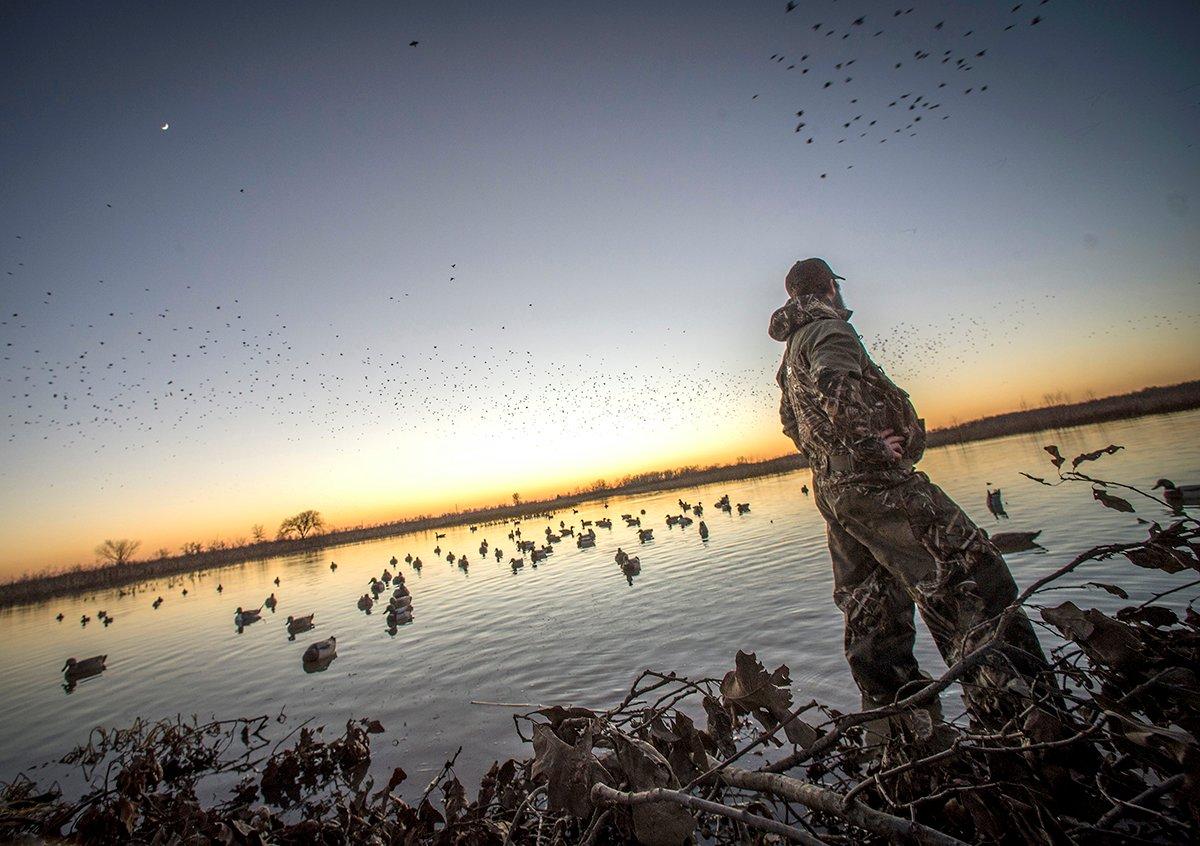Thoughts on shot calling, old dogs, hybrid mania, and the future
With another duck season behind many of us and fading for everyone else, it's nice to reflect on the campaign and ruminate about lessons from days afield.
Often, those musings might reveal bits of wisdom for the future. Sometimes, they simply create more questions. And many days, they don't lead to any conclusions. It's just nice to think about duck hunting.
The Fine Art of Calling the Shot
After 44 seasons in the duck blind, you'd think I'd be proficient at calling the shot at the perfect moment during every opportunity. And I am … sometimes. Other days, I get greedy and silently wish for one more pass as birds drift by within range. Typically, self-loathing and hyphenated cuss words follow. Now and then, I get jumpy and shoot too quickly — not as much as I used to, but it still happens.
But here's the thing: Everyone does that to a degree. I've hunted with some supremely skilled and experienced duck hunters, and I've yet to see anyone who calls the shot correctly 100 percent of the time. We all just do the best we can, I guess, based on the conditions, the mood of the ducks that day, and other factors. We'll never get it right every time, but in Lombardi-esque fashion, by striving for perfection, we might attain excellence. But get ready for those cuss words.
Common Oddities
IF social media has any positive role in duck hunting — and I've asked my editor to bold and italicize if — it's that it lets folks from various regions and backgrounds share experiences. Some of the more common eye-opening posts include those featuring hybrid ducks, which, if you believe Facebook and Instagram, are suddenly everywhere. Good grief, when did everyone start shooting hybrids? I typically see one or more hybrid posts per week, usually involving a mallard/pintail cross or mallard/gadwall hybrid (Brewer's duck). But I've also seen some whacky crosses involving wood ducks, shovelers, goldeneyes, and others. Hybrids represent a very small percentage of North American ducks, but with social media, you begin to realize that they're not that uncommon.
The same goes for oddball ducks — chief among them the mandarin duck, a beautiful close relative of our wood duck. (Groan and exasperated voice...) When did everybody start seeing mandarin ducks?
Well, they have, along the West Coast and Florida, but also in places such as Pennsylvania, Wisconsin, and Kansas. How does a perching duck native to the East Palearctic end up across North America? Most mandarins likely escaped from zoos or private aviaries. Still, their presence is notable, and I know I'd be thrilled to see one in the wild.
Old Dogs are the Best
Maybe aging pooches aren't the best for high-volume work, but they're tops when appreciating everything good about duck hunting. Every retrieve takes on greater significance. Each solid line or great mark makes you appreciate how special your dog is and reminisce about the work it took to get there. And most days, smiles replace angst when your dog makes a mistake or doesn't perform perfectly. You realize that every retriever has some limitations, and the flaws your old dog exhibits merely reflect missteps or errors in your mutual training journey.
Old dogs also make you realize how fast time passes, and that the passage seems to accelerate as you and your retriever age. One minute, your dog is a wild pup with boundless energy and an insatiable lust for birds. In the blink of an eye, the dog has 10-plus seasons behind it, and you're almost reluctantly thinking about a new puppy. Hope you enjoyed your dog's prime. Better, make sure to enjoy its golden years.
Reasons for Optimism?
Despite complaints to the contrary, waterfowl hunting is in pretty good shape. Overall bird numbers remain strong, and hunters have enjoyed liberal-format seasons since 1995. Think about that: A generation of duck hunters has only known long seasons and generous limits.
That's great, but it's also a bit troubling. When you're only accustomed to one scenario, you expect it. And for 27 years, it's held true. But it will not forever. Drought will return to the prairies one day, and duck production will decrease, at least temporarily. That's not a dark, empty prediction. It's the natural cycle of things, and it was ancient before our ancestors stepped on this continent.
Sure, you say, but the water will return, and duck production will rise with it. True, although long-term declines in CRP acreage and habitat quality raise some concerns. Moreover, though, I worry how the modern generation of duck hunters will react. In the late 1980s, when drought brought us 30-day seasons and reduced limits, hunters and the organizations they support seemed to figuratively roll up their sleeves and resolve to work through the crisis.
Will the next generation do the same when inevitable hard times arise? I think so. I hope so. But first, everyone must realize that they cannot just take North America's waterfowl for granted and assume they'll thrive forever. Everyone has a responsibility to help support, manage, and share ducks and duck hunting so the sport and resource continue long after we're gone.
Enough of the soapbox. I hope you enjoyed your duck season. Now I'm off to gawk at the latest round of mandarin duck photos.
(Don't miss: Season Splits: Do They Help Duck Hunters?)
Click here for more Realtree waterfowl hunting content. And check us out on Facebook.








